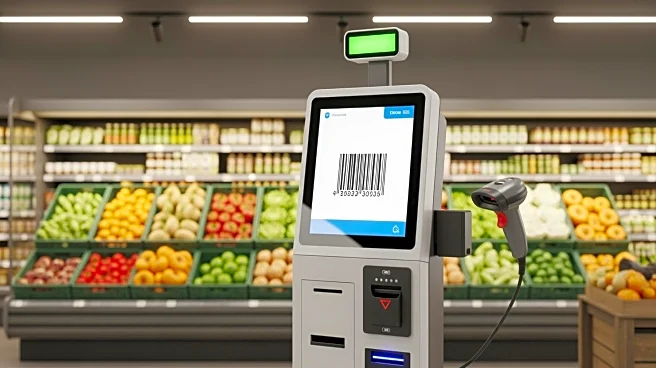What's Happening?
ITAB Shop Concept AB has announced a significant agreement with a leading European grocery chain to deliver self-checkout units across stores in 19 countries. The project, valued at up to 27 million euros,
will utilize ITAB’s OnRed technology platform, aiming to enhance store efficiency and consumer experience with a seamless checkout process. The rollout is scheduled to begin in December 2025 and conclude by the end of 2027. This deal is expected to strengthen ITAB’s market position and ongoing collaboration with the grocery chain.
Why It's Important?
The agreement between ITAB and the European grocery chain is a notable development in the retail technology sector, highlighting the growing trend towards automation and self-service solutions in stores. By implementing ITAB’s self-checkout units, the grocery chain aims to improve operational efficiency and customer satisfaction, potentially setting a precedent for other retailers to follow. This move could lead to increased demand for similar technologies, impacting companies that specialize in retail solutions and technology platforms. The deal also underscores the importance of strategic partnerships in expanding market reach and enhancing service offerings.
What's Next?
The rollout of ITAB’s self-checkout units is set to begin in December 2025, with completion expected by the end of 2027. As the project progresses, both ITAB and the grocery chain will likely monitor the impact on store operations and customer experiences. Success in this initiative could lead to further collaborations and expansions into new markets. Additionally, other retailers may consider adopting similar technologies to remain competitive, potentially driving innovation and investment in the retail technology sector.
Beyond the Headlines
The adoption of self-checkout technology raises questions about the future of retail employment, as automation may reduce the need for traditional cashier roles. This shift could lead to changes in workforce dynamics, requiring employees to adapt to new roles focused on customer service and technology management. Furthermore, the integration of advanced technology in retail settings may prompt discussions on data privacy and security, as customer interactions become increasingly digitized.












